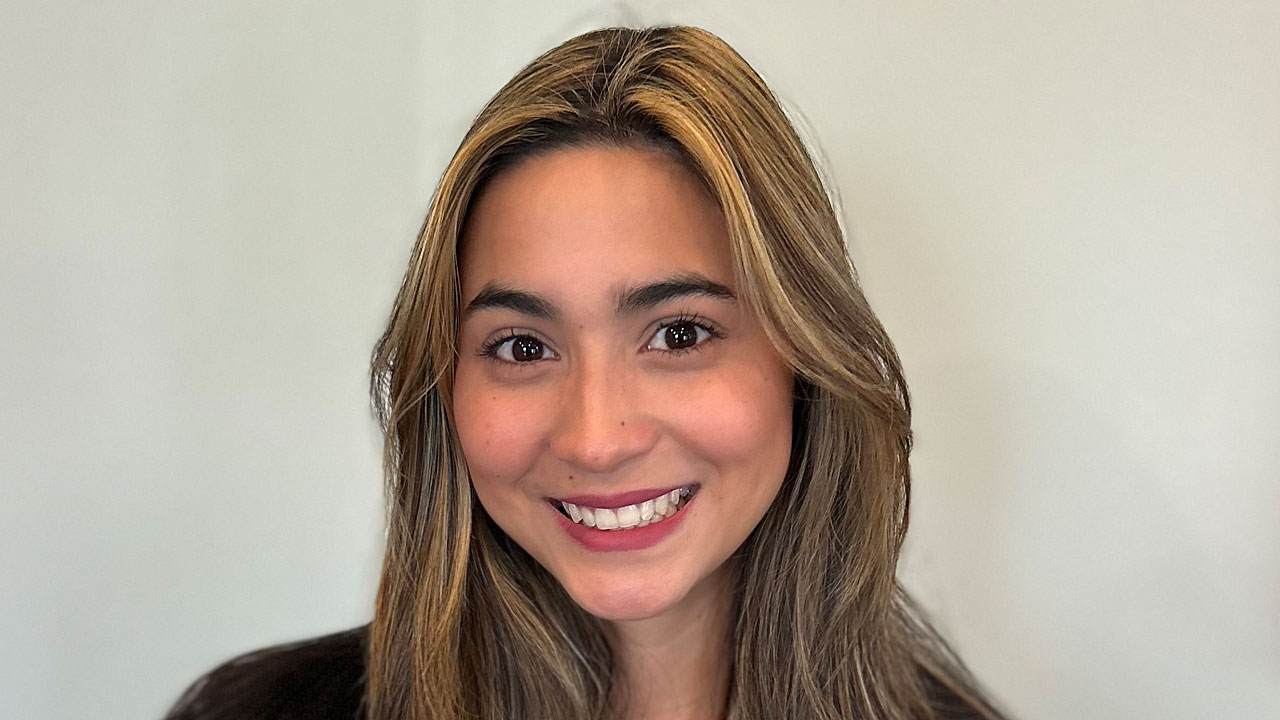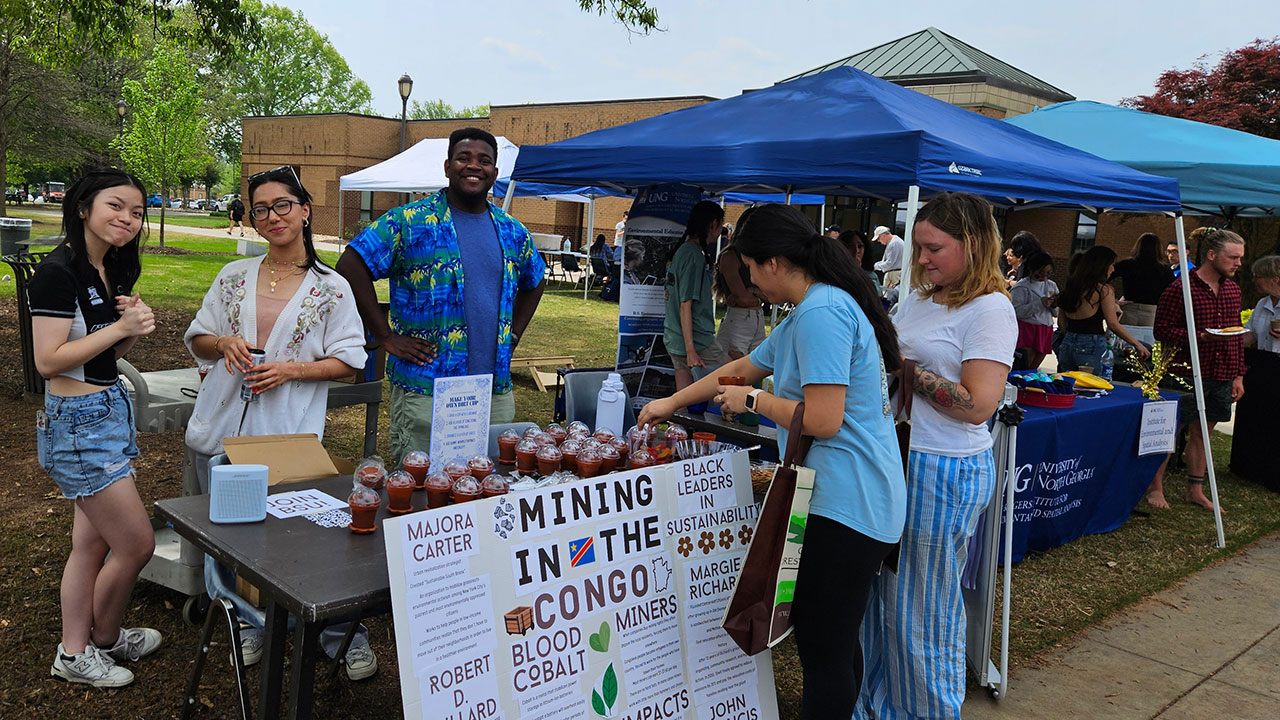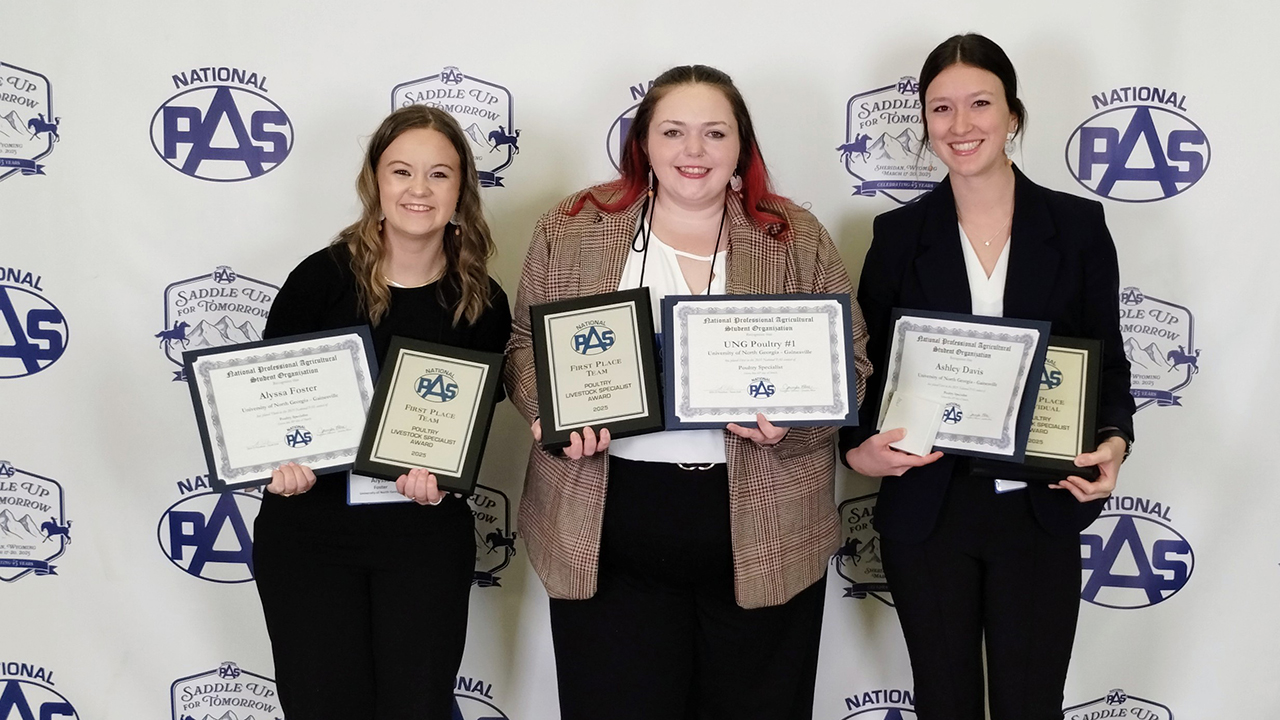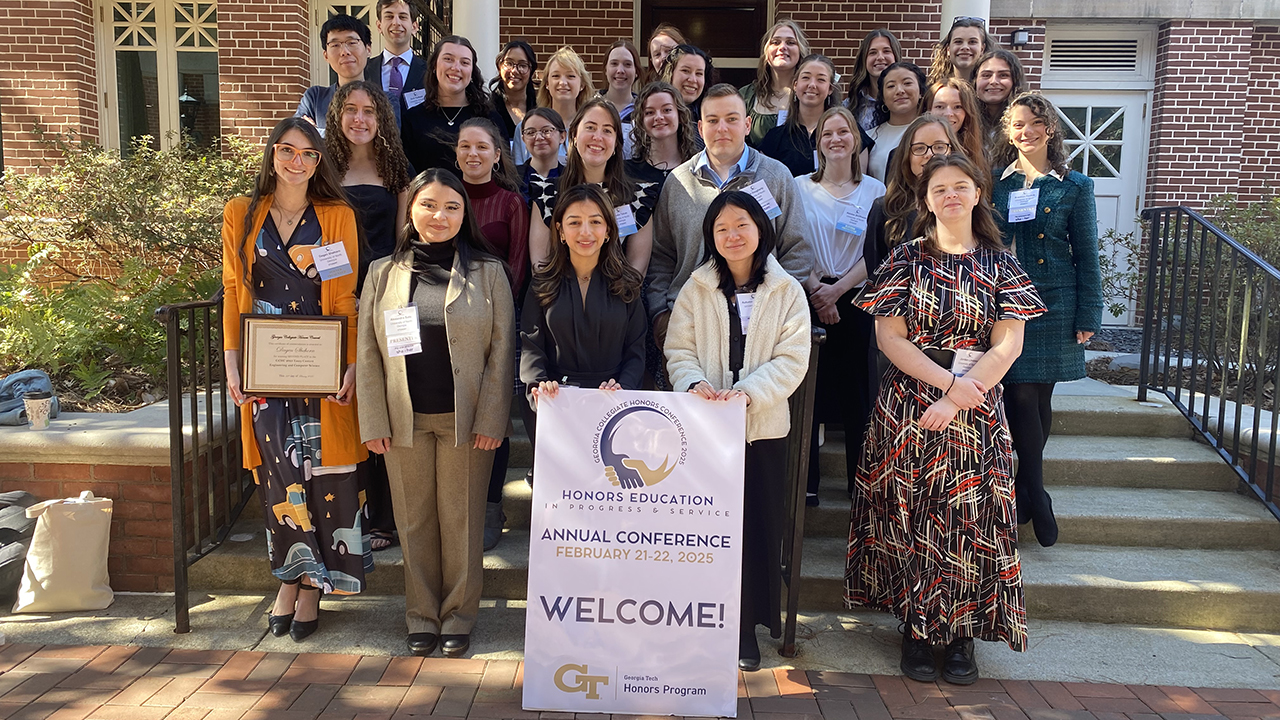Chemistry professor Tomlinson wins national Outstanding Mentorship Award

Article By: Clark Leonard
Lily Diodati is a Ph.D. candidate in polymer chemistry at the University of Florida, and David Wheeler is a Ph.D. candidate in organic chemistry at Boston University. Both credit Dr. Aimée Tomlinson, University of North Georgia (UNG) professor of chemistry, for aiding their current trajectory.
They are among 41 undergraduate students mentored by Tomlinson, who recently was one of three national recipients of the Outstanding Mentorship Award from the Council on Undergraduate Research's Chemistry Division.
Each Outstanding Mentorship Award consists of a $500 cash prize to the recipient, a certificate of recognition, a one-year individual membership to CUR funded by the Chemistry Division, and a letter of commendation from CUR sent to the recipient's institution.
Almost all of the students Tomlinson has mentored have had research published, and about half of them have enrolled in graduate school.
Tomlinson thrives on finding out students' goals, inviting them to join her computational chemistry research, and eventually helping them learn how to supervise other student researchers.
"I really enjoy and appreciate the opportunity to work with undergraduates and give them the chance to work at this level and get their name out there in the scientific community at this point in their career," Tomlinson said.
Diodati planned to attend pharmacy school. Once she got a taste of research with Tomlinson, her path changed. Diodati has two publications with Tomlinson and has submitted a third with Tomlinson. She appreciates Tomlinson's tenacity in pushing her student researchers.
"She doesn't let you give up. She makes you work hard, but she's not mean about it," Diodati said. "She's very good at getting you to see the common goal."
When students come from a variety of backgrounds that could present them challenges, Wheeler said Tomlinson sees each person's different experiences as a benefit.
"They have something to bring to the table," Wheeler said. "It's not about trying to work around them, but seeing how everyone can work together."
Dr. John Leyba, dean of UNG's College of Science & Mathematics, appreciates the impact Tomlinson makes.
"She will identify a student she feels is strong and ask them to do research with her. She spends a lot of time mentoring them and showing them how to do it," Leyba said. "She's kind of like a second mother to a lot of these students. They are very faithful to her. They come back and visit her."
Tomlinson is part of Molecular Education and Research Consortium in Undergraduate computational chemistRY (MERCURY), a National Science Foundation-funded consortium made up of 38 computational chemistry faculty from 32 primarily undergraduate institutions across the U.S. Her participation in MERCURY benefits her undergraduate students who get to join Tomlinson's collaborations with some of the top chemists in the world.
"She prepares them to go to graduate school. They understand what it's like to write a paper," said Dr. Eric Huddleston, an associate professor of chemistry who has been mentored by Tomlinson since joining UNG's faculty seven years ago. "They understand what it's like to talk to others in your field."



